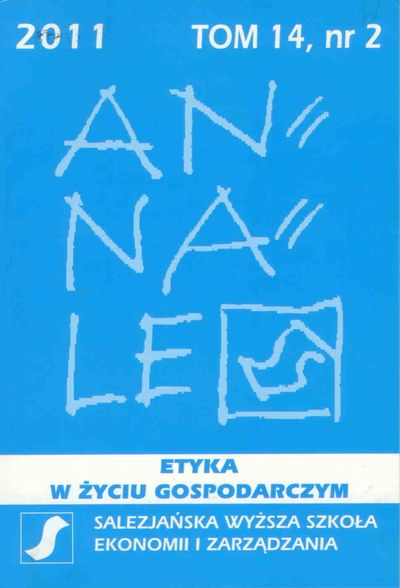Nauczanie Jana Pawła II oraz Kościoła katolickiego dotyczące zagadnień etycznych życia rodzinnego i partnerskiego a poglądy na ten temat łódzkiej młodzieży akademickiej
DOI:
https://doi.org/10.18778/1899-2226.14.2.02Słowa kluczowe:
John Paul II, family life, students opinionAbstrakt
Evaluating demographical changes in Poland and Europe at the turn of 20th century, researchers more often use the expression „family crisis”. The increase in the number of divorces and in the number of extra-marital births, prevalence of pre-marital cohabitation, as well as its increased acceptance in the society and the increase in the scope of voluntary childlessness make up such an approach to the situation. This article presents and discusses the results of a survey concerning ethical matters of family life conducted in April 2010 amongst students of Lodz’s colleges. The responses were contrasted with the declared influence of Pope John Paul’s II pontificate. A vast majority of students claim to decide upon religious wedding while entering into marriage. They also declare bringing up their potential off springs in catholic tradition. The students of Lodz are also critical of abortion. It needs to be highlighted that in almost all aspects of family life people, who declared a positive influence of the teaching and life of the Polish Pope on their behaviour, more often than others supported the teaching of Roman Catholic Church. On the basis of the conducted survey it may be noticed that the students of Lodz remember about the Polish Pope and his teaching, however, do not support all of his views as far as family life is concerned. Also the majority of the students would say they belong to „the generation of JPII”.
Bibliografia
Adamski F., Rodzina. Wymiar społeczno-kulturowy, Wydawnictwo Uniwersytetu Jagiellońskiego, Kraków 2002.
Google Scholar
Dziwisz S., Świadectwo, Przemysław Häuser, Warszawa 2007.
Google Scholar
Jan Paweł II, Evangelium Vitae, 13 [w:] Encykliki Ojca Świętego Jana Pawła II, Wydawnictwo Znak, Kraków 2006.
Google Scholar
Katechizm Kościoła Katolickiego, Pallottinum, Rzym 1994.
Google Scholar
Kotowska I.E., Teoria drugiego przejścia demograficznego a przemiany demograficzne w Polsce w latach dziewięćdziesiątych, „Studia Demograficzne” 1998, nr 4.
Google Scholar
Kwak A., Rodzina w dobie przemian. Małżeństwo i Kohabitacja, Wydawnictwo Akademickie Żak, Warszawa 2005.
Google Scholar
Ogryzko-Wiewiórowska M., Rodzina polska u progu nowego wieku [w:] Współczesne rodziny polskie – ich stan i kierunek przemian, red. Z. Tyszka, Wydawnictwo Naukowe UAM, Poznań 2004.
Google Scholar
Slany K., Alternatywne formy życia małżeńsko-rodzinnego w ponowoczesnym świecie, Zakład Wydawniczy NOMOS, Kraków 2008.
Google Scholar
Szreder M., Metody i techniki badań sondażowych, PWE, Warszawa 2004.
Google Scholar
Sztaudynger J.J., Rodzinny kapitał społeczny a wzrost gospodarczy w Polsce, http://www.jjsztaudynger.yoyo.pl/e2009-2-sztaudynger.pdf
Google Scholar
DOI: https://doi.org/10.18778/1899-2226.12.1.24
Śmigielski W., Wpływ religijności na decyzje dotyczące planowania życia rodzinnego studentów Uniwersytetu Łódzkiego [w:] Przyszłość demograficzna Polski, red. J.T. Kowaleski, A. Rossa, Wydawnictwo Uniwersytetu Łódzkiego, Łódź 2009.
Google Scholar
Pobrania
Opublikowane
Jak cytować
Numer
Dział
Licencja

Utwór dostępny jest na licencji Creative Commons Uznanie autorstwa – Użycie niekomercyjne – Bez utworów zależnych 4.0 Międzynarodowe.









